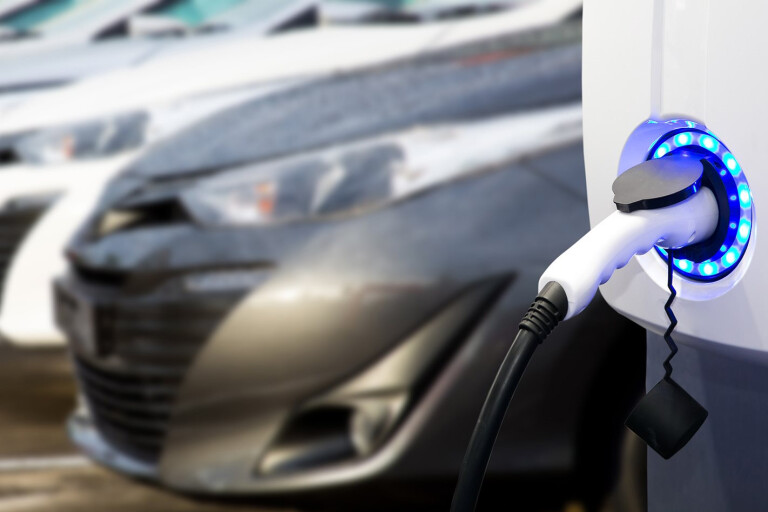
October 18, 2023: Victoria's EV road tax has been struck down
In a blow for the state, Victoria’s zero-emissions vehicle road-user tax has been deemed unlawful.
See the full story at the link below.
STORY CONTINUES: High Court challenge over Victoria's EV tax begins
Snapshot
- Legal claim based on Commonwealth's exclusive power over taxation
- Ruling could impact what happens in other states
- Pair crowdfunding to help with legal costs
A legal challenge mounted by two Melbourne electric vehicle owners against Victoria's contentious EV tax will begin in Australia's High Court in Canberra today.
The pair, represented by legal firm Equity Generation Lawyers, will argue that the State of Victoria lacks the constitutional power to levy a road user charge on electric vehicle drivers.
The State meanwhile, will defend the accusation on the basis that the road user charge is not a tax 'on goods', but rather a tax on the activity of driving a zero or low emission vehicle (ZLEV) on a 'specified road”, and that even if the charge is considered by the court as a tax on goods, it is not on the 'production, manufacture, sale or distribution', but rather on the use or consumption of them.
David Hertzberg, Senior Associate at Equity Generation Lawyers, representing the drivers at the High Court, said the case will have ramifications for the division of power between the Commonwealth and the States going forward.
Back in July last year, the Commonwealth Government intervened in support of the two owners providing a written submission to the court as such in October, while the following month all other states and territories made their own submissions backing the Victorian Government.
“The Commonwealth, which is currently designing a national electric vehicle strategy, has intervened in support of our clients. All other States and Territories have intervened against us,” said Hertzberg.
“For our clients, this case is about challenging a tax that will discourage everyday Victorians from switching to lower emissions vehicles."
Read on for more contained in our earlier stories below.

The story to here
July 18, 2022: Federal Government intervenes in case
The new Labor Government has backed two electric vehicle owners' bid to have the Victorian road user charge scrapped.
Commonwealth Attorney-General Mark Dreyfus filed an intervention in the High Court last week supporting the two motorists fight in the High Court to overturn the charge, which came into effect in July 2021.
While NSW and SA also propose a similar charge, these aren't set to begin until 2027 or until EV uptake has met a predetermined level.
A spokesman for the Attorney-General told The Age he had intervened in the case because it had “potential implications for longstanding constitutional principles in relation to revenue and economic policy”.
“The Commonwealth Government would like to work with Victoria, and with the other states and territories, on policy relating to electric vehicles. We think that is best done through governments working cooperatively,” they said.
Read on for more contained in our original story below.

September 17, 2021: Owners take Victorian Government to court
Two Victorians have launched a High Court bid to have the State's controversial electric vehicle tax withdrawn.
Chris Vanderstock, a nursing manager, and Kath Davies, an engineering consultant – both electric vehicle and plug-in hybrid drivers from Melbourne – argue that the State of Victoria doesn't have authority to impose a road-user charge.
They basis of their claim involves Section 90 of the Commonwealth Constitution, which grants the Commonwealth "exclusive power over customs, excise, and bounties". Their interpretation is that only the Commonwealth can create a road-user charge – making Victoria’s recently introduced tax invalid.
If the High Court challenge is successful, other states' plans to introduce such a fee could also be in jeopardy – leaving the Federal Government as the only entity capable of introducing a new charge for EV owners based on the distance travelled.
While Chris and Kath's legal claim rests on the Court's interpretation on the division of state and federal powers, their main concern is that the law unfairly punishes motorists trying to reduce their carbon footprint.
"We went electric to help improve the air quality of not only my family, but also those of my neighbours, my community and more. Instead of taxing clean technologies, such as electric vehicles, the State Government should be concentrating on getting dirty cars off the road," Chris said in a video explaining why he is taking legal action.

The pair's legal team, Equity Generation Lawyers, has also seen success with a decision in the Federal Court earlier this year in which it was ruled the Federal Minister for the Environment has a duty of care to avoid causing injury to young people while exercising powers to approve new coal projects. The Minister has since appealed the decision.
Chris and Kath have now raised more than $18,000 in less than 24 hours via crowdfunding to help with their legal costs.
What's been dubbed as "the world's worst EV policy" came into effect July 1, 2021 for Victorian electric vehicle owners, who have to submit a photo of their vehicle's odometer to VicRoads in order to maintain their registration.
At renewal, drivers submit another reading and receive an invoice to pay a fee of 2.5c/km, or 2c/km if they have a plug-in hybrid (PHEV). An EV driver who travels 15,000km a year will pay an average $375 each year for their registration.
Of course, an EV owner isn't subject to the fuel excise at the bowser, so the cost is off-set, however critics argue taxing low-emissions vehicles is particularly unfair for PHEV owners who have to pay both.
New South Wales and South Australia announced earlier this year that a road-user charge for electric vehicles is not in their state's best interest while adoption is so low. Both authorities will wait until either July 1, 2027, or when EVs make up 30 per cent of all new car sales to introduce fees. The Victorian Government however, claims the tax must be implemented now because it would be "too hard" to implement in the future.
COMMENTS